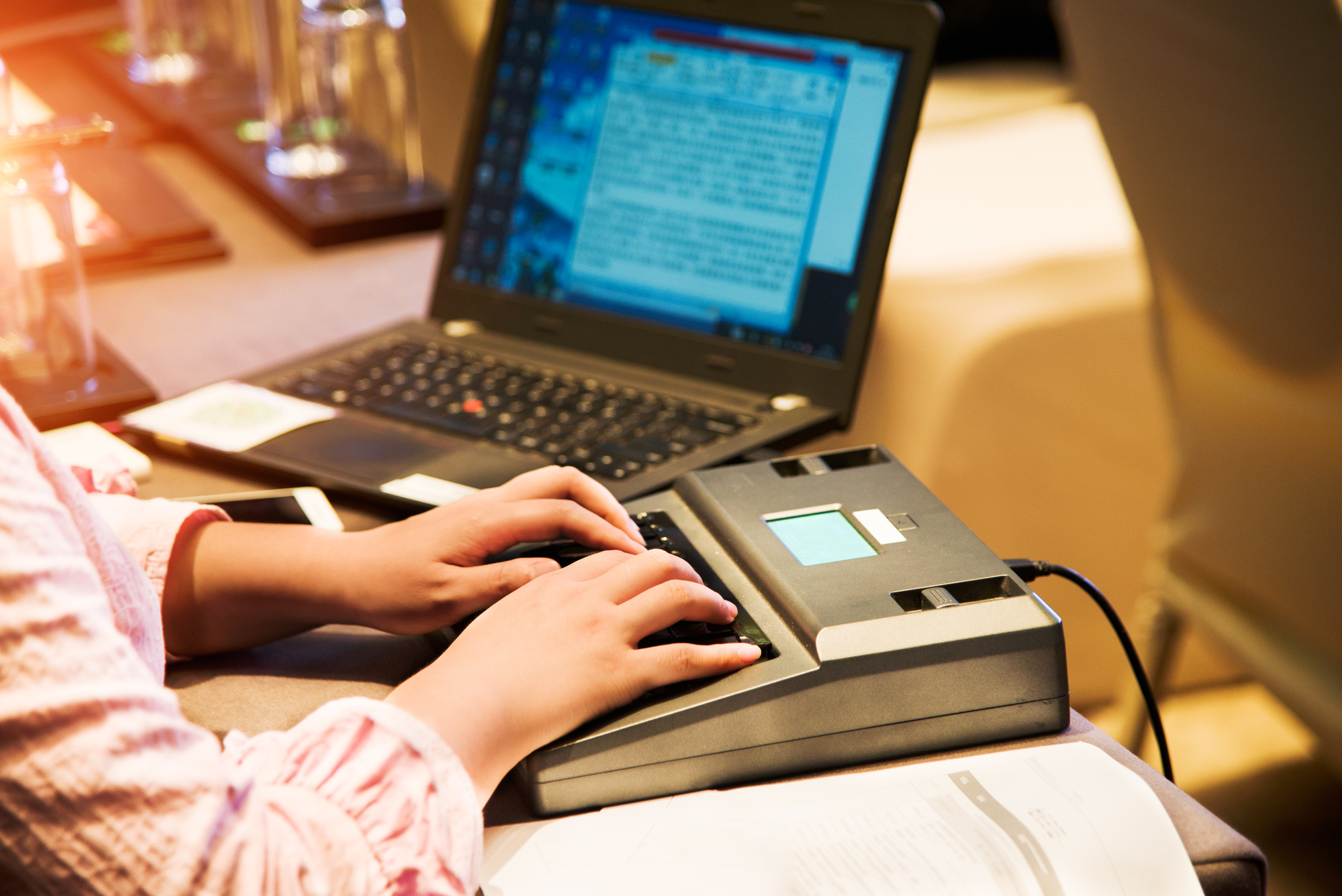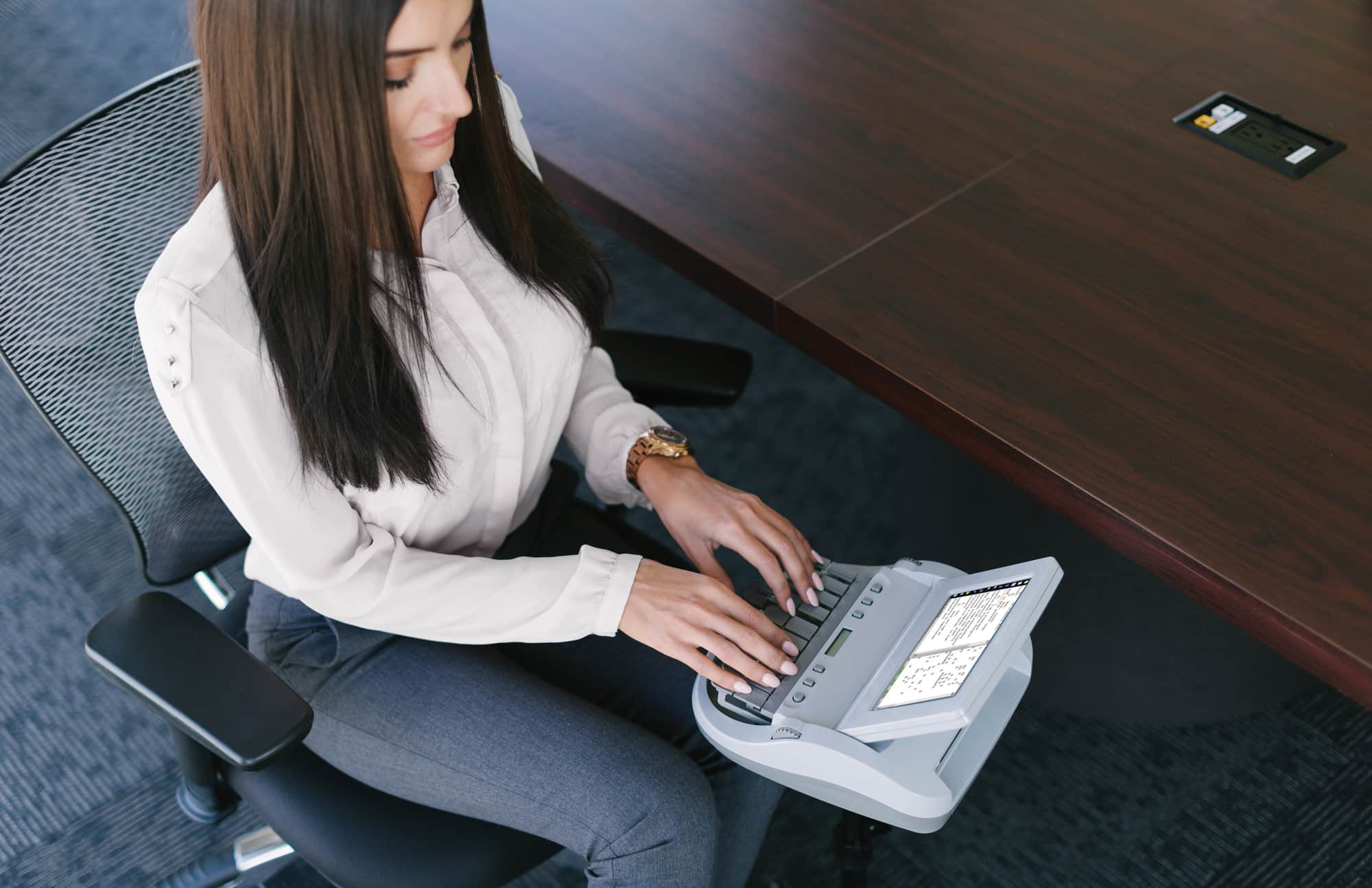Precise court reporting and Its Critical Role in Complex Litigation
Precise court reporting and Its Critical Role in Complex Litigation
Blog Article
Understanding the Important Function of Court Reporting in Legal Process
Court coverage is usually ignored, yet it's essential in lawful procedures. You may not understand just how court reporters guarantee every word spoken is videotaped properly, influencing choices made by courts and juries. Their skills and technology play a considerable role in maintaining the integrity of legal records. What specifically does the procedure entail, and how has it progressed over time? Allow's explore the essential functions of court coverage and its importance in the legal landscape.
The Background of Court Reporting
Court coverage has a rich history that dates back to old people, where scribes utilized different approaches to record talked words. By the 16th century, modern-day shorthand systems started to take shape, enabling court press reporters to create precise records successfully.
In the 19th century, the creation of the typewriter transformed the career, making it easier to develop understandable documents. The intro of steno machines in the 20th century better progressed court coverage, allowing real-time transcription throughout tests. Today, court reporters play a significant duty in legal proceedings, making sure that every word talked in the courtroom is accurately documented. Understanding this background highlights the value of court reporting in keeping a reasonable lawful system.
The Abilities Required for Court Reporters
As a stenotype reporter, you need solid keying skills to stay on par with the busy dialogue of legal procedures. Your ability to pay attention attentively is simply as important, guaranteeing every word is recorded precisely. Mastering these skills is key to delivering exact and reputable transcripts.
Competent Inputting Abilities

Solid Listening Skills
Solid listening abilities are vital for court press reporters, as they must precisely capture talked words in genuine time. This ability helps you separate in between speakers, recognize lawful lingo, and adhere to intricate conversations. Ultimately, solid listening skills make you an essential asset in legal proceedings, guaranteeing clarity and precision in the court record.
The Modern Technology Behind Court Reporting
In the domain name of legal procedures, modern technology plays a crucial role in enhancing the accuracy and performance of court reporting. You're most likely accustomed to the typical stenotype machine, yet contemporary court press reporters currently utilize advanced software that integrates with these devices, enabling real-time transcription. This means you can have instant access to the records as the proceedings unravel.
Digital audio recording is another technical innovation that's acquiring traction. It captures every spoken word, guaranteeing absolutely nothing is missed out on. Some reporters utilize voice recognition software, which can assist simplify the transcription procedure, though it still needs human oversight for precision.
In addition, cloud-based storage space permits simple gain access to and sharing of transcripts, enhancing collaboration among legal teams. By leveraging these innovations, court reporters can supply high-grade, prompt records that are essential for the legal process. Welcoming this tech not just boosts your understanding but also assures reliability in lawful documents.
The Court Reporting Refine

As legal process unfold, the court reporting procedure ends up being important in capturing every information precisely. You'll locate that a stenotype reporter plays a crucial duty by recording spoken words right into written text in real-time. When you enter the court room, the reporter is currently prepared, outfitted with specialized tools like stenographic machines and audio recording devices.
Throughout the process, the reporter pays attention diligently, typing out everything claimed, from witness testaments to lawyers' debates. You may discover them stopping periodically to assure clarity or to ask for a repeat if something wasn't clear. After the session, the press reporter assesses the records, making necessary edits for readability.
This entire procedure not just assures a comprehensive record but also prepares you for future reference throughout charms or case reviews. In the hectic setting of a court room, the court reporting process is essential for keeping a precise account of occasions.
The Value of Accuracy in Records
While a court press reporter's key duty is to record talked words, the accuracy of these transcripts is essential for the honesty of lawful proceedings. When you're included in a situation, you count on specific documentation to comprehend the occasions and arguments provided. Any check over here kind of errors in transcription can result in misunderstandings, misconceptions, and even wrongful judgments.
Accurate transcripts ensure that every information is captured, offering a reputable record for judges, attorneys, and courts. This degree of information is crucial throughout appeals or when referencing previous statements. If a transcript contains inaccuracies, it can weaken the entire legal procedure, possibly influencing end results.
Moreover, accurate records support the rights of all parties involved, promoting justness and transparency. So, whether you're a lawyer planning for test or a witness showing on your statement, you can trust that the court press reporter's skill in accuracy plays a substantial duty in your situation's success.
The Role of Court Reporters in Various Legal Setups
Court reporters play a necessary duty in different lawful setups, from trials to depositions and lawful hearings. You'll discover that their work assurances every talked word is accurately captured, which is important for the lawful process. Recognizing how their obligations vary throughout these settings can highlight their effect on the justice system.
Court Reporters in Trials
In any type of legal test, you'll find that court press reporters play an essential function in recording the procedures with accuracy and accuracy. Court press reporters should keep focus and rate, frequently making use of specialized devices to maintain up with hectic dialogue. Ultimately, court press reporters assist maintain the justice system, making sure transparency and liability throughout trials.
Depositions and Legal Hearings
Beyond trials, court press reporters additionally play a vital duty in depositions and legal hearings. Court reporters give real-time transcription services, permitting attorneys to comply with along and deal with any kind of problems immediately. In short, court press reporters are essential in keeping the integrity and quality of the legal document in depositions and hearings.
Future Trends in Court Coverage
As technology remains to advance, the future of court coverage promises to be shaped by ingenious devices and his response practices that improve precision and performance. You'll likely see increased use fabricated intelligence and real-time transcription services, improving the reporting process. These innovations can assist you access records much faster, which can be important for your lawful approaches.
Additionally, incorporating video conferencing and remote coverage will end up being extra common, allowing you to get in touch with court reporters from anywhere (court reporting). This versatility can make depositions and hearings a lot more obtainable, conserving both time and sources
You'll likewise observe a focus on electronic recordkeeping, which streamlines the storage space and access of transcripts. With cloud-based services, you'll have the capability to share files firmly and team up with your lawful group in real-time.
Regularly Asked Inquiries
What Is the Ordinary Wage of a Court Press Reporter?
The ordinary salary of a court press reporter differs by place and experience, however you can expect it to range from around $50,000 to $80,000 annually. Several elements influence this earnings, including field of expertise and need.
How Do I Come To Be a Licensed Stenotype Reporter?
To become a qualified stenotype reporter, you'll require to complete a court reporting program, pass a certification test, and gain useful experience. It's essential to remain updated on sector standards and proceeding education needs.
What Kinds of Cases Do Court Reporters Cover?
Stenotype reporter cover various instances, including criminal tests, civil suits, depositions, and adjudication hearings. You'll find them recording everything, making certain accurate documents for courts, attorneys, and parties included, capturing every word talked in lawful settings.
Are Court Reporters Required to Have a Level?
Yes, court press reporters generally require a degree or qualification in court reporting. Lots of programs use specialized training, ensuring my company you acquire the skills required for exact transcription and legal documents in different settings.
Can Court Reporters Work From Another Location?

Report this page